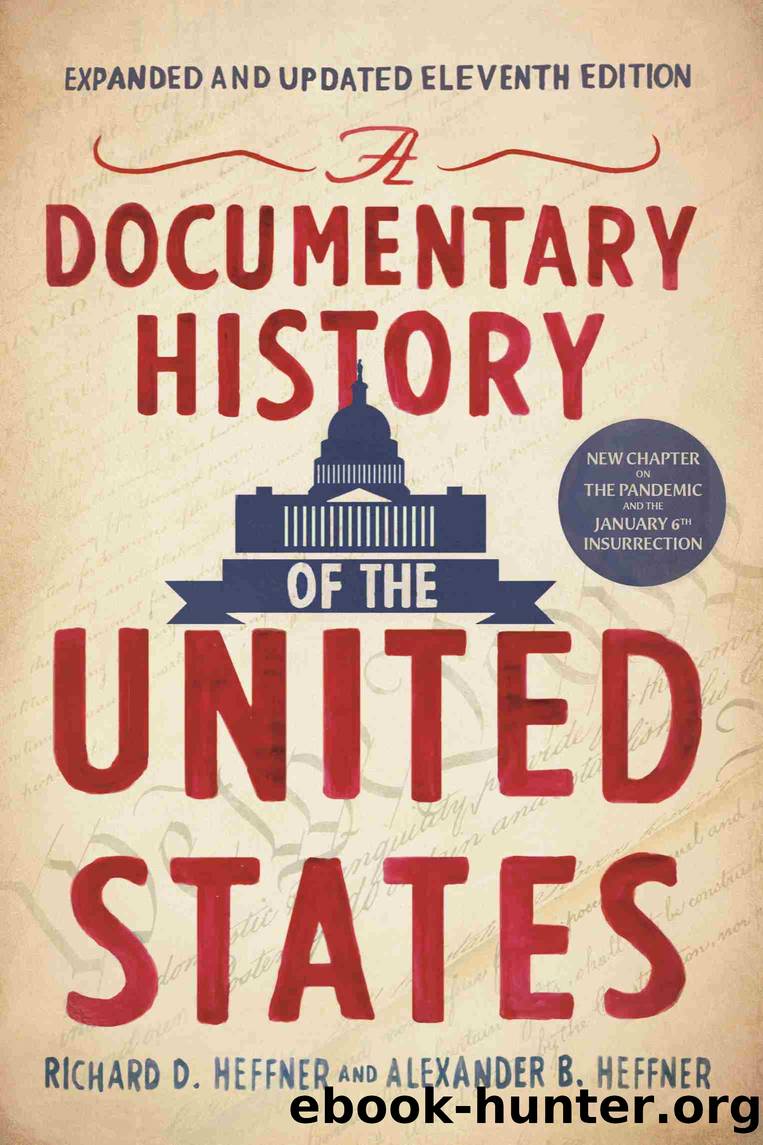A Documentary History of the United States (11th Edition) by Richard D. Heffner & Alexander B. Heffner

Author:Richard D. Heffner & Alexander B. Heffner [Heffner, Richard D. & Heffner, Alexander B.]
Language: eng
Format: epub
Publisher: Penguin Publishing Group
Published: 2022-06-28T00:00:00+00:00
22
BOOM AND BUST
In the presidential election of 1920, a war-weary and disillusioned America formally abandoned the enlightened Progressivism it had embraced in the early years of the century and embarked upon a decade-long quest for ânormalcy.â Though plans for domestic reform had been set aside and liberalism generally had been subordinated to oppressive demands for wartime conformity, the energies of Progressivism had not been entirely dissipated during the World War, for Woodrow Wilson had successfully channeled them into commanding aspirations for international understanding and world peace. But when the war to âmake the world safe for democracyâ was over, when the peace had been wonâand then lostâand the lofty visions of Wilsonian idealism had been largely dispelled, then Americans shed the burdens both of internationalism and of social experimentation. Despairing of crusades and crusaders, they sent to the White House a handsome, genial mediocrity who promised ânot heroics, but healing; not nostrums, but normalcy; not revolution, but restoration; not experimentation, but equipoise.â Warren Gameliel Harding was surely not a great leader, but his âfolksiness,â his small-town ways, his easy identification with the average citizen, and particularly his conviction that Americaâs salvation lay in a return to the simple formulas of McKinley Republicanism thoroughly endeared the Ohio politician to a tired and rather indifferent nation that eschewed reform and longed for nothing more strenuous than âequipoiseâ and ânormalcy.â
âNormalcyâ itself was a complex phenomenon that defied analysis if not description, and two of its major themes, license and intolerance, were patently self-contradictory. War had wrought absolute havoc with the Victorian moral code that long dominated American life, and the boisterous roaring twenties were marked with a widespread moral laxity undreamed of only a few years before. Now movies, magazines, and books designed for mass consumption dealt frankly and rather heatedly with sex; taboos against vulgarity were flagrantly disregarded, even in public; brazen flappers cut and bobbed their hair, rouged and lipsticked their faces, and immodestly wore their skirts higher and higher above the ankle; and a defiant younger generation loudly proclaimed that its newfound freedom was the only thing it would take at all seriously. Meanwhile the Eighteenth Amendment to the Constitution had brought Prohibition with the speakeasy, the hip flask, the rumrunner, and the beginnings of organized crime. And on a political level, a series of outrageous scandals high up in the Harding administration reflected an unmistakable breakdown in public as well as private morals.
But if lawlessness and a profound revolt in manners and morals characterized the postwar era, Americans more than compensated for this liberal self-indulgence with a political conservatism that bred fear and intolerance. For most middle-class Americans, these were golden years of plenty, and they thoroughly despised the unorthodox few whose attacks upon the established order threatened to undermine the nationâs prosperity and material well-being. In an atmosphere charged with suspicion and bigotry, criticism was soon equated with disloyalty; vigilante groups sprang up all over the country to brand as âun-Americanâ those who dared question the political and
Download
This site does not store any files on its server. We only index and link to content provided by other sites. Please contact the content providers to delete copyright contents if any and email us, we'll remove relevant links or contents immediately.
| Diaries & Journals | Essays |
| Letters | Speeches |
The Rules Do Not Apply by Ariel Levy(4969)
Bluets by Maggie Nelson(4556)
Too Much and Not the Mood by Durga Chew-Bose(4348)
Pre-Suasion: A Revolutionary Way to Influence and Persuade by Robert Cialdini(4232)
The Motorcycle Diaries by Ernesto Che Guevara(4102)
Walking by Henry David Thoreau(3962)
Schaum's Quick Guide to Writing Great Short Stories by Margaret Lucke(3381)
The Daily Stoic by Holiday Ryan & Hanselman Stephen(3323)
What If This Were Enough? by Heather Havrilesky(3311)
The Day I Stopped Drinking Milk by Sudha Murty(3197)
The Social Psychology of Inequality by Unknown(3031)
Why I Write by George Orwell(2955)
Letters From a Stoic by Seneca(2800)
A Short History of Nearly Everything by Bryson Bill(2698)
A Burst of Light by Audre Lorde(2607)
Insomniac City by Bill Hayes(2558)
Feel Free by Zadie Smith(2481)
Upstream by Mary Oliver(2390)
Miami by Joan Didion(2368)
